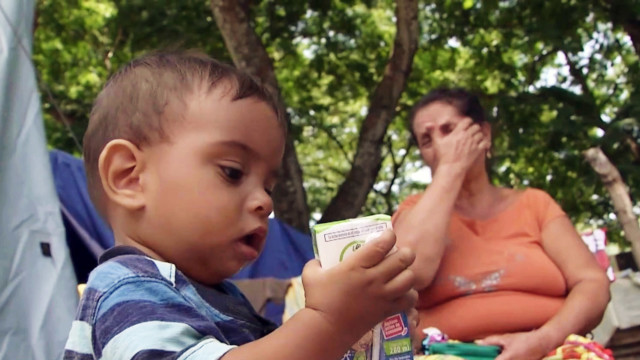Colombia is taking its fight against hunger on the road. Mountainous terrain poses an access problem for many vulnerable communities.

But, as CGTN’s Michelle Begue reports, one agency has gone mobile to provide them with the attention they need.
A group of Colombian families are living in tents because harsh winter rains flooded their homes near Salgar, Antioquia. Left with only the clothes on their backs and whatever they could carry, the community was in survival mode.
Soon, the Colombian Family Welfare Institute visited the community. The mobile unit’s goal is to fight malnutrition. They brought packs of nutritional food supplements for the children.
“The dietary supplement is really good for the children and they give us information on how to care for and educate them,” said Maria Lucelia Urelio, a local grandmother.
A big part of their job is providing nutritional guidance. “It is not just about giving the food. The families say ‘I gave him soup’ but it was filled with carbohydrates. It is missing vital vitamins, minerals and proteins. So our job is to also guide them and educate them,” said Luiz Iliana, Nutritionist Coordinator at Bienestar Familiar.
According to the Colombian government, efforts to combat malnutrition had an impact. But officials added that true figures are hard to come by because malnutrition may be at the root of so many other illnesses causing death.
That is why the mobile unit travels around the country, to register and monitor nutritional levels of children.
Since 2015, the Welfare Institute said between 60 AND 70 percent of the children it’s treated show improvement. But social workers suggested that fear and mistrust still keep some families from accepting government help.
It may take time to make up for the many years a state presence in many of these remote regions was completely lacking. But, with patience and persistence, the mobile unit hopes to build trust and promote health among many of Colombia’s most vulnerable families.
 CGTN America
CGTN America

